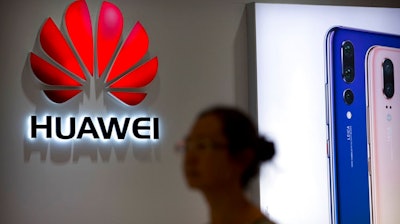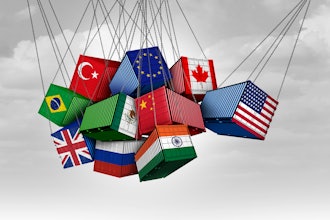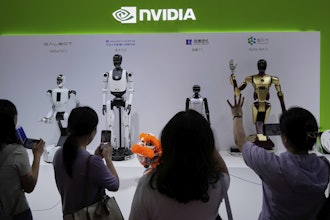
BEIJING (AP) — The United States is willing to help other countries finance purchases of next-generation telecom technology from Western providers so they can avoid Chinese tech giant Huawei, which Washington sees as a security threat, an American official said Thursday.
Washington is lobbying European and other allies to exclude Huawei Technologies Ltd. as they upgrade to 5G networks. Australia, Japan and some others have imposed restrictions on Chinese technology, but Huawei’s lower-cost equipment is popular with developing countries and is making inroads into Europe.
Giving Huawei even a small 5G role would allow Beijing to expand its “surveillance state” by eavesdropping on phone and other network-based systems, said Keith Krach, a U.S. undersecretary of state for Economic Growth, Energy, and the Environment.
“There’s lots of financing tools and those kinds of things that I think many countries like us are willing to help provide, because we recognize this danger,” Krach said on a conference call with reporters.
Huawei, China’s first global tech brand, is the biggest maker of network equipment and the No. 2 smartphone brand. It is a leader in 5G, along with Finland’s Nokia Corp. and Sweden’s LM Ericsson.
Washington is in talks with Brazil over possible financing of 5G equipment purchases by its phone carriers, the newspaper Folha de Sao Paulo reported this month, citing the American ambassador to Brazil, Todd Chapman. Chapman said Washington also was talking with other countries.
Krach gave no financial details but cited South Korea’s Samsung as another potential vendor of “trusted communications” equipment.
The pressure on Huawei comes at a time of increasingly rancorous U.S.-Chinese relations over the coronavirus pandemic, a security law imposed on Hong Kong and Beijing’s recent border clash with Indian soldiers.
Huawei denies U.S. accusations it facilitates Chinese spying or is controlled by the ruling Communist Party. Its founder, Ren Zhengfei, told reporters in January 2019 that he would reject official demands to reveal its customers’ secrets despite a Chinese law that requires companies to hand over any information demanded by the government.
5G is intended to expand networks to support self-driving cars, power plants, remotely controlled medical equipment and other futuristic applications. That makes it more intrusive and politically sensitive.
“Everything is connected to it,” said Krach. “It’s an interconnected system, and you are only as strong as your weakest link.”
U.S. export controls imposed last year block Huawei’s access to most American components and other technology. Washington tightened restrictions this year by barring companies outside the United States from using American technology to produce processor chips and other components for Huawei without U.S. government permission.
Washington wants other governments to remove earlier generations of Huawei technology as well, Krach said.
“If countries are choosing their 5G systems, this is definitely the time to do a rip-and-replace transition,” he said.




















